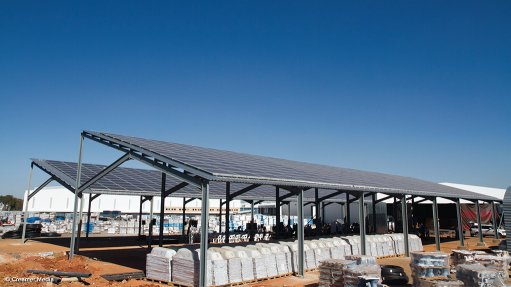
SPOTLIGHT ON IPP
In October 2014 it was announced that an additional 1 500 MW was in the final stages of approval in the REIPPPP
Photo by: Duane Daws
The Africa Energy Independent Power Producer (IPP) and Power Purchase Agreements (PPAs) Conference and Workshop, a side event that will run concurrently with the Africa Energy Indaba this month, will focus on industry-associated deals, infrastructure, the financing and procurement of IPP projects and the legal framework of PPAs.
Hosted by legal firm Macfarlanes, the Africa Energy IPP & PPA event will take place at the Sandton Convention Centre from 08:30 to 17:00 on February 19.
The conference will discuss the requirements for successful IPPs and bankable PPAs, examine lessons learned from recent experiences across Africa and the world, and identify key industry pitfalls and how to avoid them.
Together with a team of Macfarlanes energy legal experts, energy lawyer and Macfarlanes partner Scott Brodsky will be facilitating the workshop at Africa’s premier energy event, examining the requirements for successful IPPs and bankable PPAs and advising delegates on how to negotiate successful PPAs.
IPP Progress in South Africa
Launched in August 2011, South Africa’s Renewable Energy Independent Power Producer Procurement Programme (REIPPPP) has mandated the Department of Energy to procure up to 3 625 MW of power from IPPs of various renewable-energy technologies, including wind, solar photovoltaic, concentrated solar power, biogas, biomass, small hydropower and landfill gas.
An additional 3 100 MW has subsequently been made available for procurement under the REIPPPP and, in October 2014, it was announced that an additional 1 500 MW is in the final stages of approval.
Brodsky says the current power crisis in South Africa and other African nations has given rise to huge investment opportunities on the continent. “Many African countries view independent power projects as a way to address the acute shortage of power, keep the lights on and the industry producing.”
In South Africa, in just over three years, four rounds of competitive bidding have been successfully completed. Several projects across different renewable technologies have raised funding, completed construction and grid connection and achieved commercial operations; many more IPPs are on target to do the same in the next few years.
Brodsky says South Africa’s IPP programme has brought the first substantial renewable- energy output in a country dominated and severely constrained by its dependence on coal-fired power. “The introduction of renewable energy into the grid is putting the country on the map, with nations worldwide now implementing alternative, sustainable, cutting-edge energy solutions,” adds Brodsky.
He adds that South Africa’s IPP programme has been instrumental in driving local economic development, skills transfer and job creation in all areas of operation.
“While the programme has encountered several challenges, such as grid connection and the fact that there is no one-size-fits-all solution for Africa, the REIPPPP is an example of how real results can be achieved in a short timeframe,” says Brodsky.